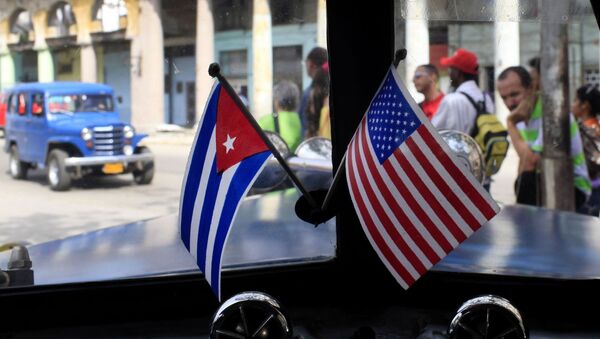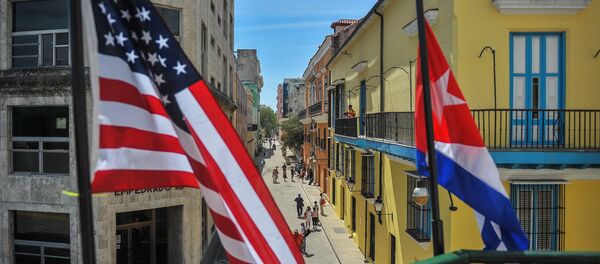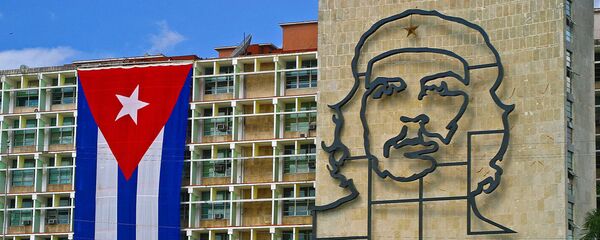A congressional staffer confirmed Obama’s plan Thursday after being briefed by the administration, although they were not authorized to discuss the decision publicly.
Usually Cuban immigrants who arrive in the US are allowed to stay, but the end of “wet foot, dry foot” means that Cubans may now have to endure similar experiences of immigrants from other countries, who often make their way into the US without a visa, and have their lives dogged by a constant fear of deportation.
Havana has agreed to accept Cubans, if they have been issued a deportation order in the US, back into the island nation, a permission it has not granted in decades.
"The United States, a land of immigrants, has been enriched by the contributions of Cuban Americans for than a century," Obama said in a statement, "Since I took office, we have put the Cuban American community at the center of our policies. With this change we will continue to welcome Cubans as welcome immigrants from other countries, consistent with our laws…the future of Cuba should be in the hands of the Cuban people."
Obama’s decision comes a week before President-elect Donald Trump is inaugurated, and as the former tries to solidify the reopening of US diplomatic engagement with Cuba. Trump has threatened to roll back some of Obama’s directives, tweeting in November, "If Cuba is unwilling to make a better deal for the Cuban people, the Cuban/American people and the U.S. as a whole, I will terminate the deal," and condemning former leader Fidel Castro after his death in late November 2106.
Senator Jeff Flake (R-AZ) praised the move, saying, "Individuals on both sides of the U.S.-Cuba debate recognize and agree that ending ‘wet foot, dry foot’ is in our national interest…It’s a move that brings our Cuba policy into the modern era while allowing the United States to continue its generous approach to those individuals and refugees with a legitimate claim for asylum." according to USA today.
The US has given preferential treatment to Cuban immigrants ever since Castro declared the island nation an ally of the Soviet Union, passing the Cuban Adjustment Act in 1966 to allow thousands of Cubans fleeing the country to gain citizenship in America.
Cuba entered its "Special period" in 1991, after the collapse of the Soviet Union left Havana without its chief benefactor. To escape conditions of scarcity, tens of thousands of Cubans made their way to the US, sometimes floating to Florida on makeshift rafts and dangerously overcrowded boats.
In 1995 President Bill Clinton passed "wet foot, dry foot" to ensure immigrant safety.
Since the two countries reopened relations in 2014, rumors of the policy’s termination have swirled, prompting another stream of Cubans to leave for the US. The number of people leaving Cuba doubled a year after talks between Obama and President Raul Castro resumed, reaching 46,635 in the first ten months of 2016, according to the Pew Research Center.




